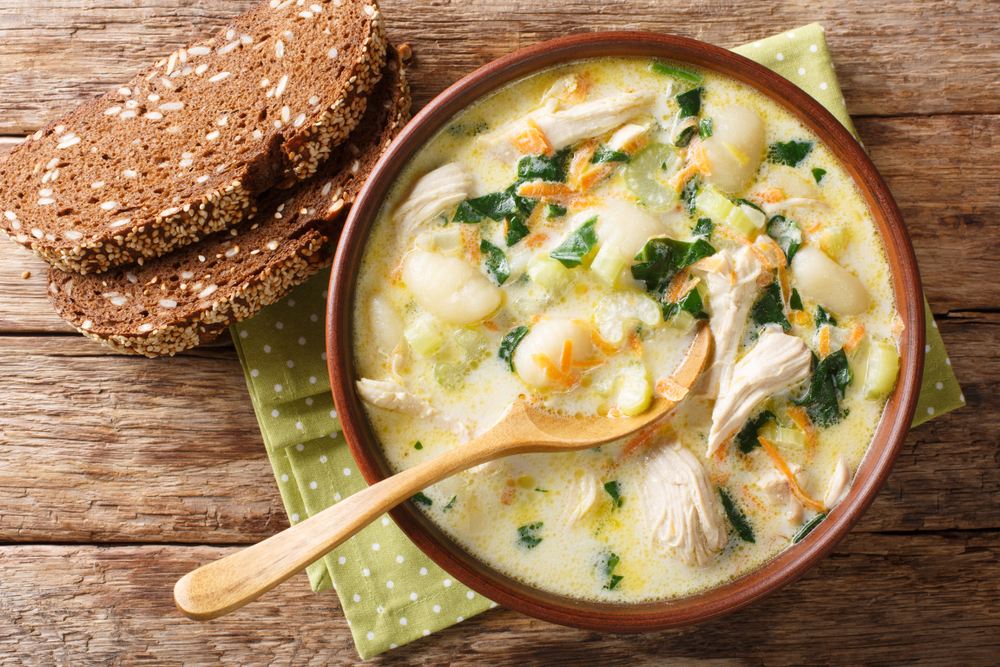Chicken gnocchi soup is the ultimate comfort food – creamy hearty and delicious. This Italian-inspired soup features tender pieces of chicken, pillowy soft gnocchi dumplings, and vegetables simmered in a rich, creamy broth. It’s no wonder this soup is so popular at restaurants like Olive Garden.
But like any homemade soup or stew, proper storage is crucial for safety and preserving flavor. So how long will leftover chicken gnocchi soup last in the fridge or freezer? What are the signs of spoiled gnocchi soup? Let’s delve into the ideal storage methods and shelf life for this cozy classic.
Understanding How Long Chicken Gnocchi Soup Lasts
The shelf life of homemade chicken gnocchi soup depends on several factors
-
Ingredient Freshness Making the soup with fresh vegetables, herbs dairy and chicken will extend its shelf life versus using older ingredients nearing expiration.
-
Storage Container: An airtight glass or plastic container is ideal. It prevents oxygen exposure which can accelerate food spoilage.
-
Refrigerator Temperature: Storing soup at a consistent 40°F or below optimizes longevity.
-
Reheating: Only reheat the portion you plan to eat to avoid introducing bacteria to the entire batch.
Properly stored, chicken gnocchi soup will last 3-4 days in the refrigerator. Freezing extends its shelf life to 2-3 months. But remember, these timeframes are simply guidelines. Relying on smell, texture, and taste tests is crucial.
Proper Storage for Optimum Freshness
Follow these tips to safely store leftover gnocchi soup:
-
Cool Completely: Within 2 hours of cooking, divide into shallow containers. Once cooled to room temperature, promptly refrigerate.
-
Use Airtight Containers: Glass and BPA-free plastic containers maintain freshness best. Never use metal containers; they can impart a metallic taste over time.
-
Label Containers: Include the prep or use-by date so you know when leftovers expire.
-
Mind Refrigerator Placement: Store soup containers on a shelf, not in the door where the temperature fluctuates.
-
Portion for Freezing: Freeze soup in single serving sizes to prevent thawing and re-freezing leftovers after reheating.
How to Identify Spoiled Chicken Gnocchi Soup
Rely on your senses besides the date on the container to determine if your leftover soup has spoiled:
-
Sight: Mold, sliminess, separating liquid, or an unnatural color change signals spoilage.
-
Smell: An off, sour, rancid odor indicates bacteria growth. Trust your nose.
-
Taste: If still unsure after smelling, cautiously taste a tiny amount. Any bitterness or sourness means spoilage.
When in doubt, throw it out. Foodborne illnesses aren’t worth the risk.
Freezing and Thawing Chicken Gnocchi Soup
Want to stash that remaining soup for up to 3 months? Here’s how:
-
Allow soup to cool completely before transferring to a freezer bag or container. Exclude as much air as possible.
-
Thaw overnight in the fridge before reheating gently on the stovetop or microwave.
-
Don’t refreeze previously frozen soup; food safety declines.
-
Add cream or milk after thawing as these can curdle or separate during freezing.
-
Expect the gnocchi to be slightly less firm after freezing but still tasty!
FAQs About Chicken Gnocchi Soup Storage
Got lingering questions about safely storing this fab soup? Here are answers to common queries:
How long can I store chicken gnocchi soup at room temperature?
Never leave soup out for over 2 hours; bacteria multiply rapidly above 40°F. Refrigerate leftovers within this window.
What happens if I eat spoiled chicken gnocchi soup?
Consuming spoiled soup can cause foodborne illness. Symptoms like vomiting, diarrhea, and fever may arise. Seek medical treatment for severe issues.
Can I reheat chicken gnocchi soup in the microwave?
Yes, microwave in short intervals until reaching 165°F internally. Stir periodically for even heating.
Does adding cream or milk affect freezing chicken gnocchi soup?
Dairy may curdle or separate after freezing. Stir well before serving to redistribute evenly.
How can I speed up cooling hot soup for the fridge?
Divide into shallow containers like metal baking pans so heat dissipates faster. An ice bath also accelerates cooling.
What temperature should my refrigerator be to store soup?
40°F or below. Buy an appliance thermometer to monitor the temp. Adjust as needed.
Can I freeze and re-freeze chicken gnocchi soup after initially thawing it?
Avoid refreezing soup once thawed. The texture and taste decline with each freeze-thaw cycle. Cook within 3-4 days of thawing instead.
The Takeaway on Chicken Gnocchi Soup Shelf Life
Mastering the storage time, signs of spoilage, and freezing best practices for chicken gnocchi soup means you can safely savor this soul-warming soup. Trust your senses, invest in quality storage containers, and label leftovers properly.
Implement the storage, cooling, and freezing strategies above and you’ll be poised to relish the comforting flavors of homemade chicken gnocchi soup without worry. Just be diligent with food safety fundamentals when handling this cream-based soup.
So whip up a batch soon and freeze a portion or two for hectic nights when you need a quick dinner. This freezer-friendly soup is destined to become a regular in your meal rotation.

Can I Make This Soup in a Slow Cooker?
Yes, you can make this soup in a slow cooker! I’m a big believer in sautéing vegetables even if you’re doing a slow cooker soup because the cooked down veggies caramelize and their sugars release making for more delicious flavor.
- After sautéing the veggies, throw everything in the slow cooker except the gnocchi, dairy (half and half) and the spinach as those things will go in at the end.
- Cook for 3-4 hours on low.
- In the the last hour, add the gnocchi.
- Right before serving, move to a pot, add the half and half and cornstarch and spinach and stir to combine over medium heat.
Can I Make This Recipe Vegetarian?
Chicken and gnocchi go together really well, but if you need to make this a vegetarian soup try these substitutes for the chicken:
- Cubed Russet Potatoes
- Cubed White Sweet Potatoes
- Chopped Zucchini
